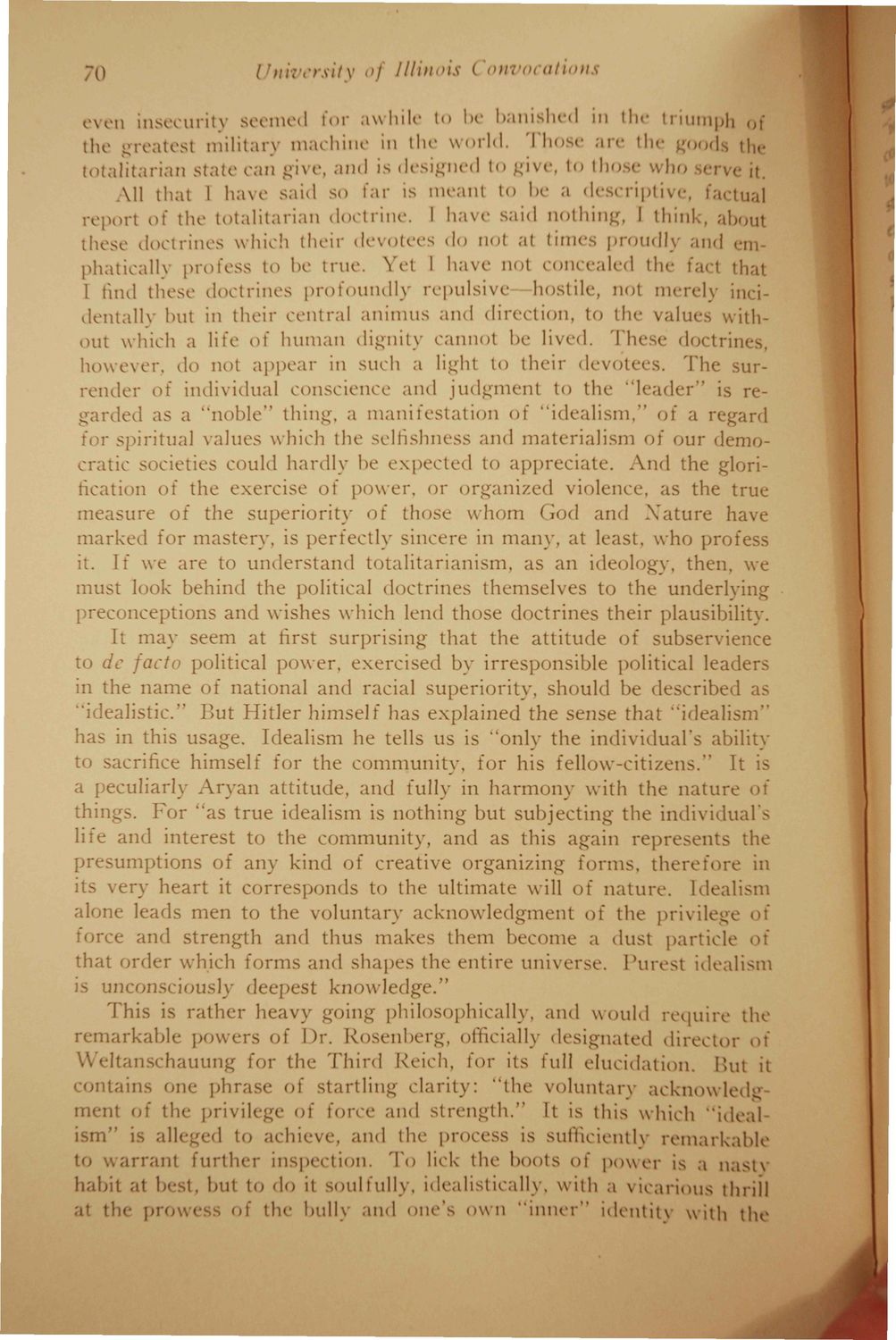| |
| |
Caption: Convocation - 1942 Winter-Spring
This is a reduced-resolution page image for fast online browsing.

EXTRACTED TEXT FROM PAGE:
70 Unit rsity of Illinois I onvocations even insecurity seemed for awhile to be banished in the triumph of the ereatest military machine in the world. Those are the goods the totalitarian stale can give, and is designed to give, to those who erve it. \U that 1 have said so far is meant to be a descriptive, factual report oi the totalitarian doctrine. 1 have said nothing, I think, about these doctrines which their devotees do not at times proudly and emphatically profess to be true. Yet I have not cona iled the fact that 1 find these doctrines profoundly repulsive—hostile, not merely incidentally but in their central animus and direction, to the values with- out which a life of human dignity cannot he- lived. These doctrines, however, do not appear in such a light to their devotees. The surrender of individual conscience and judgment to the "leader" is regarded as a "noble" thing, a manifestation of "idealism," of a regard for spiritual values which the selfishness and materialism of our democratic societies could hardly be expected to appreciate. And the glorification of the exercise of power, or organized violence, as the true measure of the superiority of those whom God and Nature have marked for mastery, is perfectly sincere in man}-, at least, who profess it. If we are to understand totalitarianism, as an ideology, then, we must look behind the political doctrines themselves to the underlying • preconceptions and wishes which lend those doctrines their plausibility. It may seem at first surprising that the attitude of subservience to de facto political power, exercised by irresponsible political leaders in the name of national and racial superiority, should be described as • lealistic." But Hitler himself has explained the sense that "idealism" has in this usage. Idealism he tells us is ''only the individual's ability to sacrifice himself for the community, for his fellow-citizens." It is a peculiarly A r y a n attitude, and fully in harmony with the nature of thin s. For "as true idealism is nothing but subjecting the individual's life and interest to the community, and as this again represents the presumptions of any kind of creative organizing forms, therefore in its very heart it corresponds to the ultimate will of nature. Idealism alone leads men to the voluntary acknowledgment of the privilege of force and strength and thus makes them become a dust particle of that order which forms and shapes the entire universe. Purest idealism is unconsciously deepest knowledge." This is rather heavy going philosophically, and would require the remarkable powers of Dr. Rosenberg, officially designated director i^i W Itanschauung for the T h i r d Reich, for its full elucidation. But it ontains one phrase of startling clarity: "the voluntary acknowledge ment of the privilege of force and strength." It is this which "idealism" is alleged to achieve, and the process is sufficiently remarkable to \ irrant further inspection. T o lick the boots of power is a nastv habit at best, but to do it soul fully. idealisticalK , with a vicarious thrill «t the prowess of the bully and one's own "inner" identity with the
| |